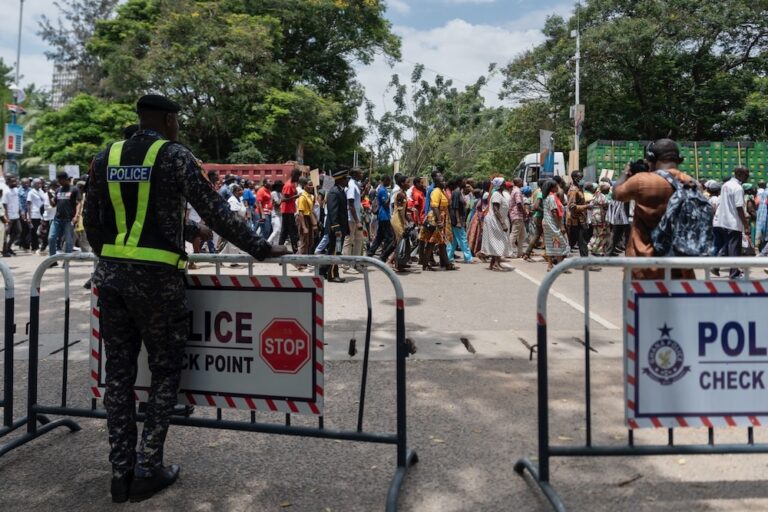(WAJA/IFEX) – The bill to amend the criminal libel and seditious laws in Ghana entered its second stage in parliament on Tuesday 24 July 2001. The proposed amendment seeks to repeal chapter seven of part two of the 1960 Criminal Code (Act 29), which covers criminal libel. Section 182A of the Criminal Code, which grants […]
(WAJA/IFEX) – The bill to amend the criminal libel and seditious laws in Ghana entered its second stage in parliament on Tuesday 24 July 2001.
The proposed amendment seeks to repeal chapter seven of part two of the 1960 Criminal Code (Act 29), which covers criminal libel. Section 182A of the Criminal Code, which grants the president the power to ban organisations at his discretion, would also be repealed. Other sections to be tackled include 183, 183A and 185, which respectively deal with the offence of sedition, defamation of the president and the criminalisation of communication, in any form, to any person, of a false statement likely to injure the reputation of the state.
The bill becomes law after the third reading in the House. With reports that both the ruling New Patriotic Party (NPP) and opposition National Democratic Congress (NDC) members of parliament are ready to support the amendment, it appears that the law will likely be repealed since the two parties together control over 90 percent of the 200 seats in the House.
Nana Akufo Addo, the attorney general, said the time had come to “expand the boundaries of freedom in the state” by repealing those laws that have hindered free expression since the days of colonial rule.
As part of its campaign promises before it came to power, the NPP promised to change the legal environment to allow for more freedom of expression in Ghana.
Obed Asamoah, the then attorney general who insisted before the December 2000 elections that the law would not be changed if the NDC retained power, has meanwhile admitted in recent days that his party would not reverse the amendment if they return to power.


